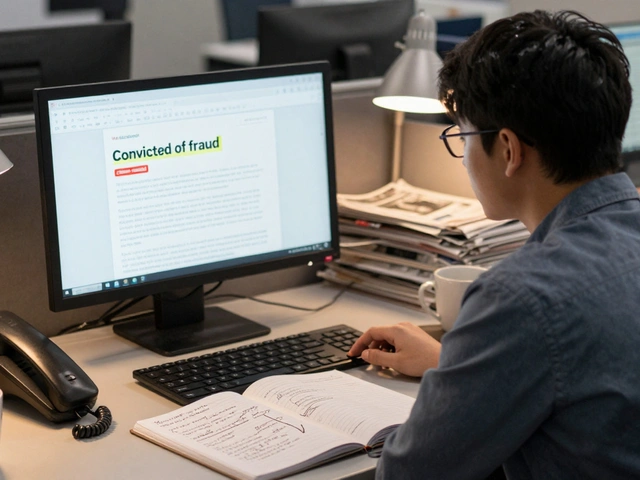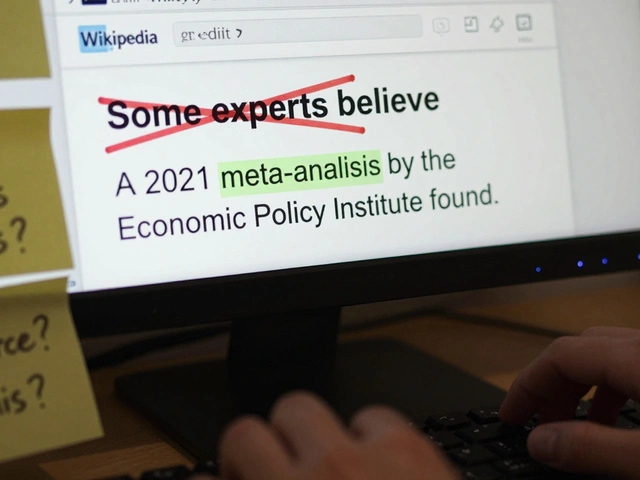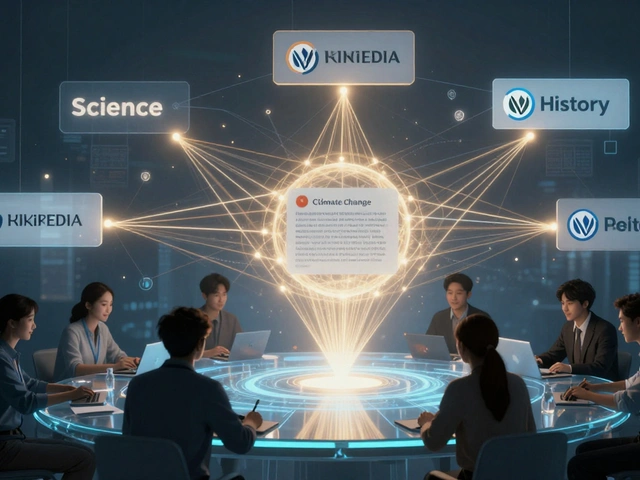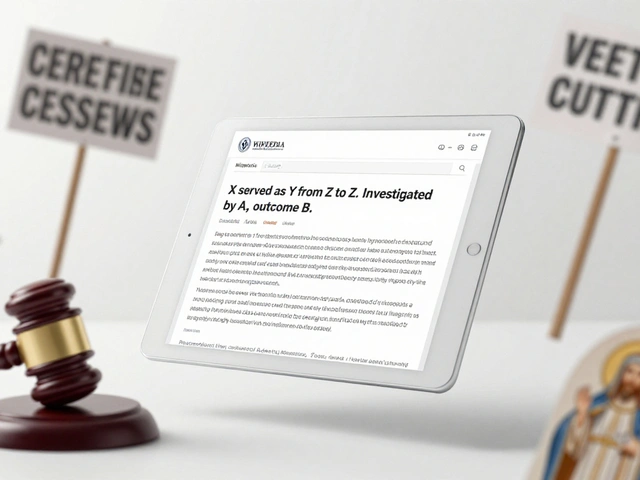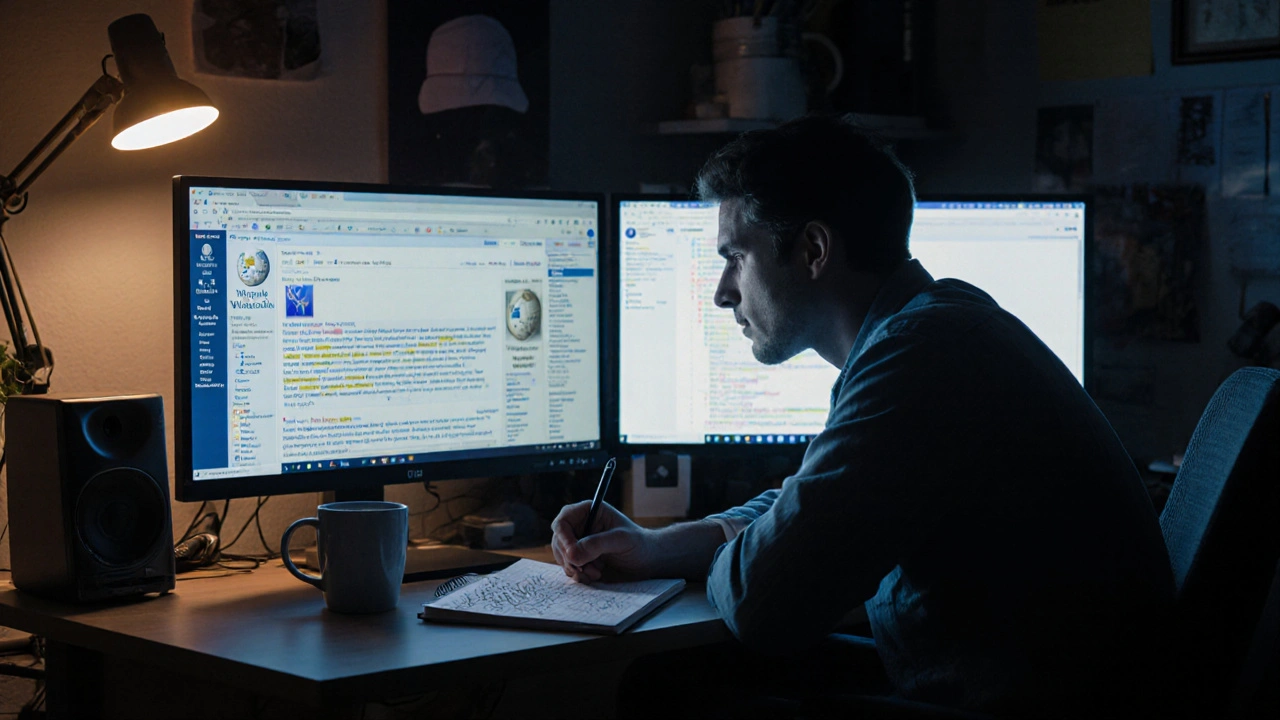
Every week, a small group of volunteers picks what gets published on The Signpost-Wikipedia’s own newspaper. It’s not a corporate newsroom. No editors from corporate headquarters assign stories. No algorithms decide what’s trending. Instead, it’s a community of editors, researchers, and longtime Wikipedians who read hundreds of edits, talk to other contributors, and ask: What matters here?
It’s Not About Page Views
You won’t find headlines on The Signpost like "Celebrity Makes Controversial Edit" or "Viral Meme Changes Wikipedia Article." That’s not because they don’t happen-they do. But The Signpost doesn’t chase clicks. It tracks impact. A single edit that changes how a historical event is described across dozens of languages might get a full article. A bot that fixes 5,000 broken citations in one night? That’s front-page news.
What matters is whether the change affects how people understand the world. A correction in a medical article about vaccine side effects? That’s significant. A dispute over the spelling of a minor character’s name in a video game? Probably not. The Signpost looks for ripple effects, not noise.
Where Stories Come From
Most stories start in the places no one else watches. The Administrators’ Noticeboard, where editors report vandalism or policy violations. The Reliable Sources noticeboard, where people debate whether a news outlet is trustworthy enough to cite. The Articles for Deletion discussions, where entire entries are argued over for days.
One editor might notice a pattern: five different language versions of Wikipedia are all deleting articles about the same obscure political figure. Another might spot a coordinated campaign to rewrite a biography using unverified claims. Someone else reads through the edit histories of a popular article and finds a quiet, months-long effort to add citations from peer-reviewed journals.
These aren’t public events. They happen in the background. The Signpost team watches them like detectives.
The Selection Process
There’s no formal application. No submission form. Editors who want to write for The Signpost pitch ideas in a private weekly meeting on Discord and in a public talk page. Anyone can join. You don’t need to be an admin. You don’t need to have edited for ten years. You just need to care enough to notice something unusual.
Here’s how a story gets picked:
- A volunteer notices a trend-like a surge in edit wars over a new scientific study.
- They write a draft, citing diffs (edit links), usernames, and policy references.
- It’s posted on the Community Portal for feedback.
- Other volunteers comment, fact-check, suggest sources, or argue it’s not significant enough.
- After 2-5 days, the editorial team decides: publish, revise, or drop.
Stories get rejected all the time. A draft about a celebrity editing their own Wikipedia page? Too trivial. A report on a coordinated campaign to erase references to a genocide? That’s in.

What Gets Covered
The Signpost doesn’t cover every controversy. It covers the ones that change how Wikipedia works. Here are the types of stories that regularly make the cut:
- Policy changes approved by the community-like new rules for citing social media.
- Major technical updates-new tools for detecting biased edits, or AI-assisted citation checkers.
- Legal threats or government requests to remove content.
- Patterns of vandalism or sockpuppetry affecting multiple languages.
- Studies about Wikipedia’s influence-like how it affects school textbooks or news reporting.
One article in 2024 looked at how Wikipedia’s coverage of climate change had improved after a year-long outreach to scientists. Another tracked how editors in Ukraine rebuilt articles about Russian military actions after the invasion, using only verified sources from local media. These aren’t headlines you’ll see on CNN. But they’re the kind of work that keeps Wikipedia accurate.
Why It Matters
Wikipedia isn’t just a website. It’s the most-read reference source on Earth. Over 2 billion people visit it every month. The Signpost is the only place where the people who maintain it openly discuss what’s going wrong, what’s working, and what’s changing.
When a journalist writes a story about Wikipedia being "biased," they often cite a single controversial edit. But The Signpost shows the full picture: the hundreds of edits that corrected that bias, the policies that prevent it, the volunteers who spent weeks restoring accuracy.
It’s not about defending Wikipedia. It’s about showing how it actually works-messy, slow, human, and surprisingly resilient.

Who Writes It
The Signpost has no staff. No salaries. No office. Its editors are students, retirees, librarians, software developers, and teachers. One editor works nights after her shift at a hospital. Another writes during lunch breaks while managing a small business. A college student in India edits articles on colonial history and writes for The Signpost in his free time.
They all share one thing: they’ve spent hundreds of hours on Wikipedia. They’ve seen how articles evolve. They know which edits are mistakes, which are campaigns, and which are quiet acts of truth-telling.
There’s no byline on every article. Sometimes, it’s just "The Signpost Team." That’s intentional. It’s not about individual fame. It’s about collective responsibility.
What You Can Do
If you read Wikipedia regularly, you’re already part of this system. But you can do more.
- Follow The Signpost on its main page. It’s updated every Monday.
- Join the weekly discussion on its talk page. Ask questions. Share what you’ve noticed.
- If you see something strange-a sudden flood of edits on a sensitive topic, or a pattern of removals-don’t ignore it. Report it on the relevant noticeboard.
- Write a draft. You don’t need to be an expert. Just describe what you saw, link the edits, and let others help you refine it.
Wikipedia doesn’t need more readers. It needs more watchers. More people who care enough to notice when something’s changing-and to say something about it.
What’s Next
The Signpost is testing a new feature: a monthly digest for non-editors. It’s called "Wikipedia in Context"-a plain-language summary of the biggest community decisions, policy shifts, and technical updates. No jargon. No edit diffs. Just what it means for you.
It’s still in beta. But if you’ve ever wondered why Wikipedia changed the way it cites a source, or why a famous person’s biography suddenly looks different, this digest will explain it.
For now, you can read it on the Signpost’s website. The team hopes to expand it into a newsletter. Because if Wikipedia is the world’s encyclopedia, then The Signpost is its conscience.
Who runs The Signpost?
The Signpost is run entirely by volunteer Wikipedia editors. There are no paid staff or corporate owners. Editors pitch stories, write drafts, and review each other’s work through open discussions on Wikipedia’s talk pages and Discord channels. Anyone can join the process.
How often is The Signpost published?
The Signpost is published every Monday. Each issue includes several articles, a community update, and a section called "In the media" that tracks how other outlets are covering Wikipedia. It’s been running weekly since 2005.
Can anyone submit a story to The Signpost?
Yes. Any registered Wikipedia editor can submit a story idea. There’s no formal application. You write a draft, post it on the Community Portal, and invite feedback. If the editorial team agrees it’s significant, they’ll help you polish it for publication.
Does The Signpost cover breaking news?
Not in the traditional sense. The Signpost doesn’t report on celebrity scandals or viral events unless they trigger major changes on Wikipedia. It focuses on how Wikipedia’s community responds-like policy debates, edit wars, or new tools introduced to handle the fallout.
Is The Signpost biased toward certain topics?
It reflects the priorities of Wikipedia’s editor community. Topics like history, science, and public policy get more coverage because those are where the most substantial edits happen. But the team actively seeks out underrepresented areas-like edits in African, Indigenous, or non-Western languages-to ensure balance.
